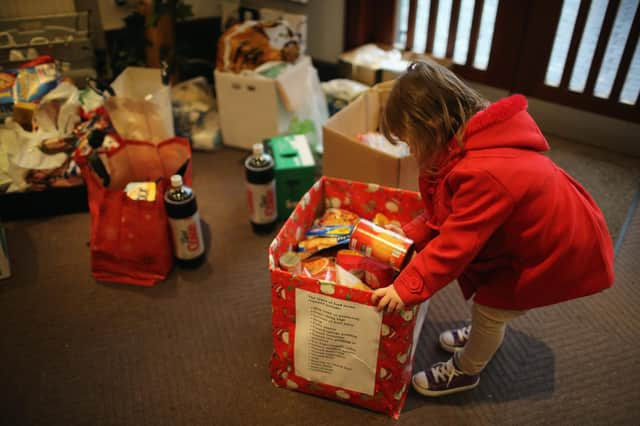Shocking levels of 'deep poverty' in Scotland are a serious health issue – Dr Gwenetta Curry


The festive season is a joyful time for many but for over a million people in Scotland living in deep poverty, it’s a reminder of the ever-growing gap between the haves and have-nots. According to a recent Joseph Rowntree Foundation report, about half that number, 490,000 people, are living in “very deep poverty” – defined as having a household income after housing costs lower than 60 per cent of the national average.
The report’s most disturbing finding was the increasing trend of in-work poverty. Almost 75 per cent of people experiencing this have a family member working in hospitality, health and social work, retail, administrative support, and/or manufacturing. Ironically, those who were in these sectors were considered essential workers during the recent Covid pandemic. These families, who were responsible for keeping the country running during this period, have been left behind and are unable to provide for their family’s basic needs.
Advertisement
Hide AdAdvertisement
Hide AdPart-time employment is a significant factor for in-work poverty, not just due to the lower number of working hours but also lower wages. Seventy-two per cent of people who are locked into persistently low-paying jobs are women, which contributes to the gender pay gap.
The real cost of poverty is not only the loss of money but also the loss of health. Those living in the most deprived areas of Scotland have the lowest life expectancy as well as a lower quality of life. According to the Health Foundation, in the most deprived areas, men are dying over 13 years earlier than their peers in the least deprived areas and women almost a decade earlier. The major drivers of high poverty rates are income from employment, the cost of living, and benefits.
Thirty per cent of adults living in persistent poverty are in poor health compared with 15 per cent of adults not living in poverty. Twenty-four per cent of households headed by a person of Black/African/Caribbean/Black British ethnicity live in persistent poverty which is more than twice as high as a household headed by a person of white ethnicity (11 per cent). Marginalised groups in Scotland are experiencing a disproportionate amount of poverty which can have real implications for health outcomes.
Poverty is a major driver of poor health outcomes. Those experiencing it face barriers to accessing healthy foods and healthcare services. Despite the NHS, people living in deprived areas can still find it difficult to access health services. A study in England found that, in the most deprived areas, people are 2.1 times more likely to experience a wait of more than a year for help, compared to people in the least deprived areas.
High rates of poverty mean that many people will not be able to participate in routine activities expected in societies such as holiday celebrations – for example, they may not be able to buy presents for children or travel to meet their families. The fight against poverty remains a major focus to ensure that all members of society are able to take part in such routine activities. Excluding any group from fully participating in society can have damaging effects on physical and mental health outcomes.
Dr Gwenetta Curry is an Edinburgh University reader in race, ethnicity and health
Comments
Want to join the conversation? Please or to comment on this article.
